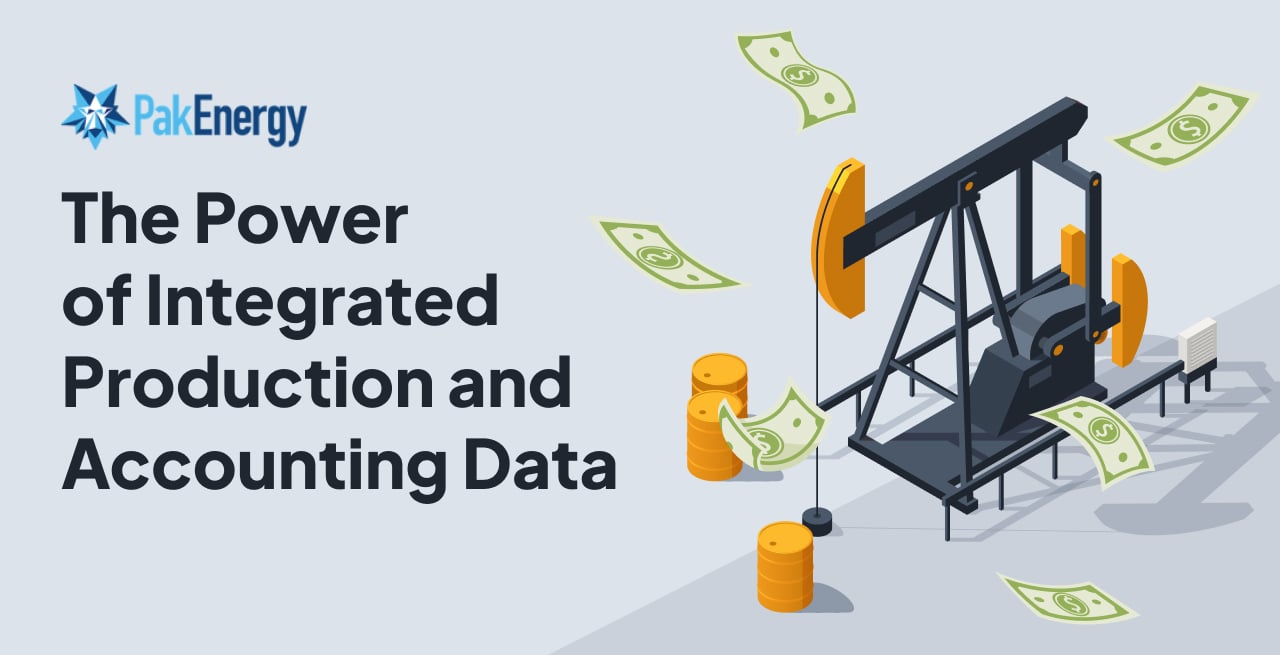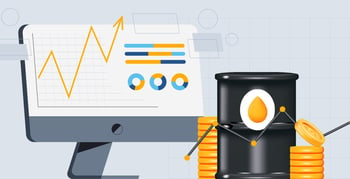
Upstream oil and gas companies rely on timely and accurate accounting data to make informed decisions that impact production operations. The inability to share critical financial data between the field and back office can slow down productivity, reducing cash flow and frustrating even the most seasoned production managers.
Many operators are now utilizing modern oil and gas accounting software to integrate their financial and production processes. This enables them to access real-time data insights that drive operational efficiency through improved strategic decision-making.
How Does Non-Integrated Data Hinder O&G Operations?

Energy operators that still rely on disconnected systems to manage their accounting and production data often face these operational challenges:
- Unreliable Reporting: Non-integrated data can lead to discrepancies between production volumes and financial metrics, resulting in poor decisions and lost revenue.
- Data Barriers: Disjointed tools make collaboration harder, causing undue confusion around roles and responsibilities.
- Production and Revenue: They must accurately monitor production and track revenue derived from leased properties.
- Inefficient Resource Use: Manually transferring data across platforms slows reporting and pulls resources away from higher-value tasks.
- Regulatory Noncompliance: Tracking compliance data across multiple systems complicates reporting and increases exposure to audits and penalties.
- Increased Costs: An inability to access accounting data can lead to missed opportunities for reducing production costs, thereby increasing operational expenses, and reducing profits.
The Role of Modern Energy Accounting Software
Investing in oil and gas accounting software has become a priority for upstream operators looking to stay competitive and efficient. These tools help integrate accounting and production data, making it easier to manage operations while improving overall performance.
No Silos or Barriers
Connected systems allow authorized users to access financial and production data from a single platform, significantly enhancing efficiency and strategic decision-making. Modern energy accounting platforms break down traditional data barriers, optimizing team communication and collaboration across all workflows.

Saves Time and Money
Decreasing manual data entry processes minimizes the likelihood of errors, improves accuracy, and ensures clarity in financial reporting. Today’s cloud-based platforms capture, store, and analyze large volumes of data quickly, reducing overhead costs and enabling accounting and production teams to focus on critical operations.
Improves Decision-Making
Modern oil and gas software delivers real-time data reporting and analytics, creating a direct line between field and back-office teams. With instant access to key performance metrics, teams can make faster, more informed decisions and adjust strategies with confidence.
Ensures Regulatory Compliance
Integrated accounting and production solutions help ensure that data is consistent, up-to-date, and easily retrievable for audits, allowing operators to maintain compliance with changing industry regulations and reporting requirements.
High Return-On-Investment
Automating accounting and production processes minimizes reliance on manual data entry, paper files, and other legacy management systems, enabling companies to lower administrative costs and allocate assets more effectively.
Connect Field and Finance—All in One Platform
Tired of switching between disparate, disconnected systems? PakEnergy’s oil and gas accounting software brings your production and financial data together, with no workarounds or guesswork. With real-time visibility from the field to the back office, your team can move faster, stay aligned, and make smarter decisions at every level.
Ready to discover how PakEnergy can transform your oil and gas business? Connect with a Pak Pro today and take the first step towards achieving your production and accounting goals.
Learn firsthand how PakEnergy's modern digital solutions helps a Permian operator meet strategic goals.
Catch this on-demand webinar now »

